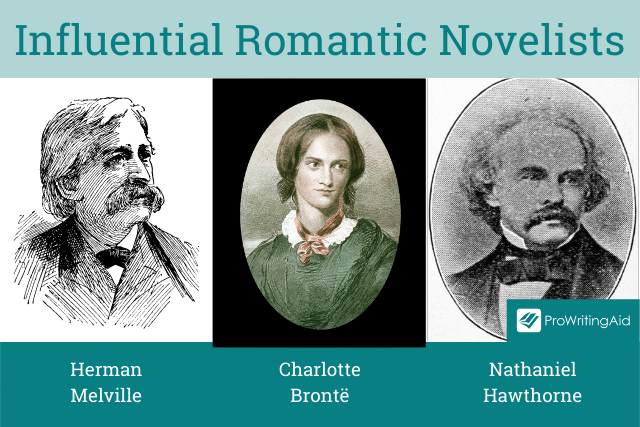An Exploration into the Enchanting World of Romanticism: Unveiling the Profound Themes and Enduring Literary Legacy
The Romantic era, spanning from the late 18th century to the mid-19th century, witnessed a profound shift in artistic, intellectual, and societal sensibilities. Literature, as a formidable force in reflecting societal transformations, inevitably mirrored this metamorphosis. Romantic writers, with their tempestuous emotions, unrestrained imagination, and reverence for nature, left an enduring mark on the literary landscape.

Image: prowritingaid.com
A Myriad of Themes Igniting Literary Expression
Romanticism encompassed a diverse tapestry of themes that captivated the imaginations of writers and readers alike. Poets and novelists alike explored the raw power of nature, the complexities of human emotions, and the transformative journey of self-discovery. They sought refuge in the whimsical realm of the supernatural and reinterpreted history with an antiquarian’s fascination. Echoes of the Gothic and the macabre resonated through their works, adding an eerie enchantment to their literary creations.
Nature’s Untamed Symphony: A Source of Solace and Awe
Romantic writers found solace and inspiration in the untamed wilderness. Nature, in its rugged and sublime grandeur, became a potent muse for their creative pursuits. William Wordsworth, a towering figure of the era, extolled the restorative power of nature in his famed declaration, “One impulse from a vernal wood / May teach you more of man, Of moral evil and of good, / Than all the sages can.” From the tranquil shores of Lake Windermere to the desolate grandeur of Scottish moors, nature served as an omnipresent and evocative backdrop for Romantic literature.
The Labyrinth of Human Emotions: Unraveling the Depths of the Psyche
Romantic writers delved deep into the recesses of human emotions, exploring their tumultuous highs and melancholic lows. They reveled in the complexities of passion, loss, and despair, laying bare the raw and authentic tapestry of the heart. Mary Shelley’s “Frankenstein” and Emily Brontë’s “Wuthering Heights” exemplify this fascination with the darker hues of the human experience, exposing the interplay of love, madness, and the quest for redemption.

Image: www.pinterest.es
The Quest for Authenticity: Navigating the Journey of Self-Discovery
Romantics placed immense value on inward exploration and authenticity. They perceived the journey of life as a voyage of self-discovery, a quest for meaning amidst the uncertainties of the human condition. The works of Romantic writers navigate the complexities of identity, purpose, and the search for one’s place in the grand cosmic tapestry. This relentless pursuit of self-knowledge rendered their literature both introspective and universally resonant.
The Enchanting Embrace of the Supernatural: Blurring the Boundaries of Reality
The Romantic era witnessed a resurgence of interest in the supernatural. Authors incorporated elements of the Gothic, the fantastic, and the uncanny into their narratives. Their works explored the shadowy realms inhabited by ghosts, fairies, and other ethereal beings. From the haunting tales of Edgar Allan Poe to the eerie landscapes of Horace Walpole’s “The Castle of Otranto,” the supernatural served as a catalyst for imaginative exploration and an escape from the confines of reality.
A Lasting Influence on the Literary Canon: Shaping Generations to Come
The impact of Romantic literature extended far beyond the era in which it emerged, leaving an enduring legacy on generations of writers and readers alike. Its focus on emotion, imagination, and the celebration of the individual laid the groundwork for the modernist literary movements that followed. The works of Romantic writers continue to resonate with readers today, inviting them to dive into the boundless depths of their own hearts and minds while marveling at the beauty and awe of the natural world.
Writers During The Romantic Period Were Interested In .
The Enduring Allure: A Tapestry Woven with Imagination, Emotion, and Enduring Beauty
Writers during the Romantic period were drawn to a multitude of themes that ignited their creative spark. The raw power of nature, the intricacies of human emotion, the enigmatic aspects of the supernatural, the quest for self-discovery, and the evocative lens of history ignited their imaginations. As purveyors of beauty, they captured the subtle nuances of the human experience, entrancing generations with their enduring literary creations. The legacy of Romanticism, woven with imagination, emotion, and timeless appeal, continues to inspire, provoke, and enchant readers to this very day.

